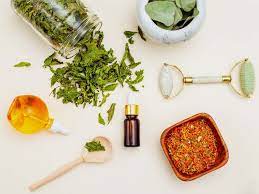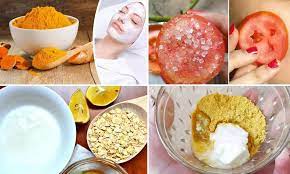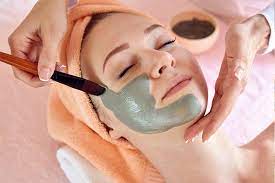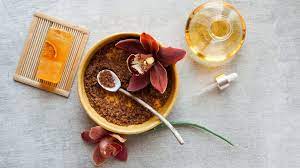Nature’s Secrets: Top Skincare Tips for Naturally Beautiful Skin
Skin is the largest organ of the human body, and taking care of it is essential for a healthy lifestyle. Nature has provided us with countless skincare ingredients that can help to nourish and revitalize our skin. In this blog post, we’ll be exploring the top skincare tips for naturally beautiful skin, so you can discover the power of nature and learn how to maximize your skin’s potential.
Why natural skincare is important

When it comes to skincare, it’s easy to get lost in the sea of products available on the market. From anti-aging creams to acne treatments, there seems to be a solution for every skin concern. However, have you ever considered that some of these products may be doing more harm than good? Many skincare products are loaded with synthetic chemicals, which can be harmful to your skin and the environment. This is where natural skincare comes in. By opting for natural products, you’re not only benefiting your skin but also reducing your carbon footprint.
Natural skincare products are free of harmful chemicals such as parabens, sulfates, and synthetic fragrances. These chemicals can cause skin irritation, dryness, and other issues. Natural skincare products, on the other hand, are formulated with ingredients sourced from nature, such as plant extracts, essential oils, and herbal remedies. These ingredients are packed with nutrients that nourish and soothe the skin, without causing any harm.
Moreover, natural skincare products are eco-friendly and sustainable. Synthetic ingredients can be harmful to the environment, contaminating our waterways and damaging ecosystems. By choosing natural skincare, you’re supporting a more sustainable and responsible way of living.
In summary, natural skin care is important because it’s better for your skin, the environment, and your overall health. So, the next time you’re shopping for skincare products, remember to check the labels and opt for natural, eco-friendly options. Your skin and the planet will thank you for it!
Ingredients to look for in natural skincare products

When it comes to natural skincare, it’s important to know what ingredients to look for. Here are some of the most beneficial ingredients to incorporate into your skincare routine:
- Aloe Vera: Aloe Vera is known for its soothing properties and can help to reduce inflammation, redness, and acne.
- Tea Tree Oil: Tea tree oil has antifungal and antibacterial properties, making it an effective ingredient for treating acne and preventing breakouts.
- Coconut Oil: Coconut oil is a natural moisturizer and is perfect for those with dry skin. It’s also rich in antioxidants and can help to prevent signs of aging.
- Shea Butter: Shea butter is another great moisturizer and can help to soothe irritated skin. It’s also high in vitamins A and E, which can help to reduce the appearance of fine lines and wrinkles.
- Chamomile: Chamomile has anti-inflammatory properties and can help to soothe and calm irritated skin. It’s also rich in antioxidants, which can help to protect the skin from environmental damage.
- Jojoba Oil: Jojoba oil is a great ingredient for all skin types as it closely resembles our skin’s natural oils. It’s also high in vitamins and minerals and can help to prevent signs of aging.
When shopping for natural skincare products, be sure to read the ingredient list and look for these beneficial ingredients.
The benefits of using essential oils in your skincare routine

Essential oils have been used for centuries to promote healthy and beautiful skin. These natural plant extracts offer a range of benefits, including antioxidant, anti-inflammatory, and antibacterial properties. They can help to moisturize, tone, and revitalize the skin, while also providing a relaxing and uplifting aromatherapy experience.
Some of the best essential oils for skincare include lavender, rose, tea tree, chamomile, and geranium. Lavender is particularly effective for soothing and calming the skin, while rose can help to hydrate and brighten the complexion. Tea tree is known for its antibacterial properties, making it a great choice for those with acne-prone skin. Chamomile can help to reduce inflammation and redness, while geranium is ideal for balancing oily skin.
To incorporate essential oils into your skincare routine, start by adding a few drops to your daily moisturizer or serum. You can also create your own customized facial oil blend by mixing a few drops of different essential oils with a carrier oil, such as jojoba or argan oil. Another great way to use essential oils is in a facial stream. Simply add a few drops of your favorite oil to a bowl of hot water and place your face over the steam for 5-10 minutes. This can help to open up pores and deeply cleanse the skin.
When using essential oils in your skincare routine, it’s important to choose high-quality, pure oils and to always dilute them properly. Some oils can be irritating or sensitizing to the skin if used undiluted, so be sure to do a patch test before applying them to your face. With the right precautions, essential oils can be a powerful tool for achieving naturally beautiful, healthy skin.
DIY natural face masks for glowing skin

One of the easiest and most cost-effective ways to take care of your skin is to make your own face masks at home using natural ingredients. Here are a few simple DIY face masks to get you started on your journey to glowing, healthy skin:
- Honey and Lemon Mask: Mix one tablespoon of raw honey with a few drops of fresh lemon juice. Apply to your face and let it sit for 15-20 minutes. Rinse with warm water. This mask helps to brighten and exfoliate the skin, while the antibacterial properties of honey help to fight acne.
- Oatmeal and Banana Mask: Mash up one ripe banana and mix with two tablespoons of oatmeal and a teaspoon of honey. Apply to your face and let it sit for 15-20 minutes. Rinse with warm water. This mask is great for soothing dry, sensitive skin and helps to moisturize and nourish the skin.
- Avocado and Yogurt Mask: Mash up half an avocado and mix with two tablespoons of plain yogurt. Apply to your face and let it sit for 15-20 minutes. Rinse with warm water. This mask is rich in antioxidants and healthy fats that help to hydrate and rejuvenate the skin.
- Turmeric and Coconut Oil Mask: Mix one teaspoon of turmeric powder with two tablespoons of coconut oil. Apply to your face and let it sit for 10-15 minutes. Rinse with warm water. This mask helps to brighten the skin and reduce inflammation, while the antibacterial properties of coconut oil help to fight acne.
By using natural ingredients in your skincare routine, you can give your skin the nutrients and hydration it needs to stay healthy and radiant. So why not try making your own face masks at home and unlock the power of nature for beautiful, glowing skin?
How to incorporate herbal remedies into your skincare routine

If you’re looking for a natural way to take care of your skin, incorporating herbal remedies into your skincare routine is a great way to go. These remedies are packed with vitamins, minerals, and antioxidants that can help nourish and protect your skin. Here are some tips to help you get started.
- Choose the right herbs
Some herbs are better for certain skin types or conditions. For example, chamomile and lavender are great for calming and soothing sensitive skin, while tea tree oil is excellent for treating acne-prone skin. Do your research and find the herbs that will work best for you. - Infuse your skincare products with herbs
You can infuse your favorite skincare products with herbs to enhance their benefits. Simply steep the herbs in hot water and add the infusion to your toners, serums, or lotions. - Use herbal toners
Herbal toners are an excellent way to add a natural boost to your skincare routine. Witch hazel and rose water are two popular herbal toners that can help balance your skin’s pH and improve its overall appearance. - Try herbal face masks
Making your own herbal face masks is an easy way to give your skin a natural glow. Mix some fresh herbs like mint, rosemary, and parsley with honey and oatmeal to create a paste that you can apply to your face. Leave the mask on for 15-20 minutes and rinse off with warm water.
Incorporating herbal remedies into your skincare routine can be a fun and effective way to take care of your skin. Just make sure to choose the right herbs for your skin type and follow the proper steps for incorporating them into your routine. With a little bit of research and experimentation, you can create a skincare routine that is both effective and natural.
The importance of a healthy diet for beautiful skin

As the old saying goes, you are what you eat. This is particularly true when it comes to the health and appearance of your skin. To achieve naturally beautiful skin, it’s important to focus not just on what you apply topically, but also on what you consume internally. Here are a few ways that a healthy diet can support radiant, glowing skin:
- Provides essential nutrients: The skin is a reflection of your overall health, so it’s important to nourish your body with a balanced diet rich in essential vitamins and minerals. Foods that are high in antioxidants, such as fruits and vegetables, can help to protect the skin from damage caused by environmental stressors, while healthy fats (found in foods like nuts and fatty fish) can support skin hydration and elasticity.
- Helps to maintain a healthy gut: The gut-skin connection is a hot topic in the skincare world, as research suggests that a healthy gut microbiome can have a positive impact on the health of your skin. Eating a diet that is high in fiber and fermented foods (like yogurt, sauerkraut, and kimchi) can help to promote a healthy balance of gut bacteria, which can, in turn, support healthy skin.
- Can reduce inflammation: Inflammation is a key driver of many skin concerns, including acne, rosacea, and eczema. Eating a diet that is low in processed foods and sugar and high in anti-inflammatory foods (such as leafy greens, berries, and turmeric) can help to reduce inflammation in the body, which may lead to a clearer, calmer skin.
- Supports healthy digestion: Poor digestion can manifest in several ways on the skin, from acne to dullness to puffiness. Eating a diet that is rich in fiber and hydrating foods (such as watermelon, cucumber, and celery) can help to promote healthy digestion and reduce bloat and puffiness.
Remember, achieving healthy, beautiful skin is a holistic endeavor that requires attention to both internal and external factors. By nourishing your body with a healthy diet, you can support your skin’s natural radiance and glow from the inside out.

